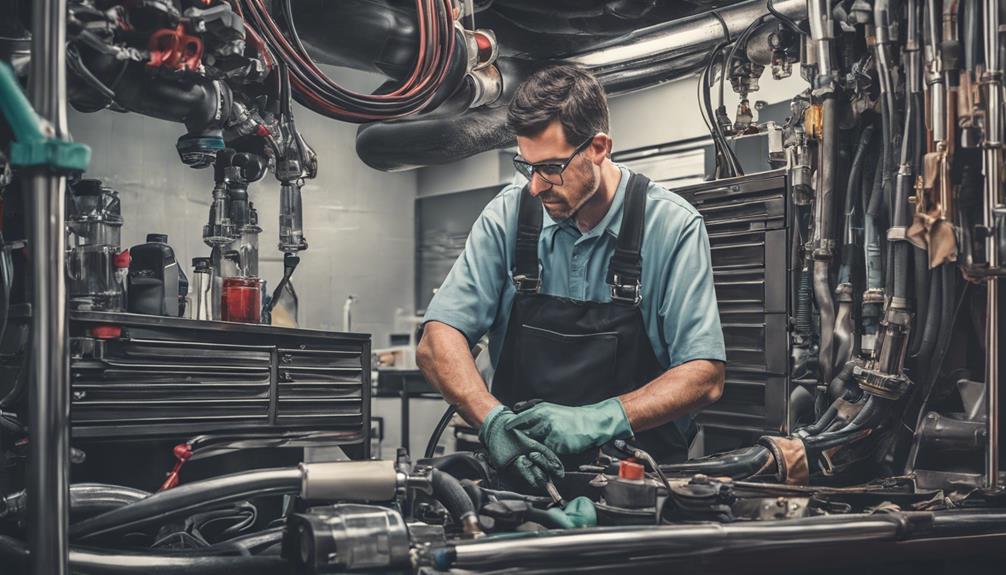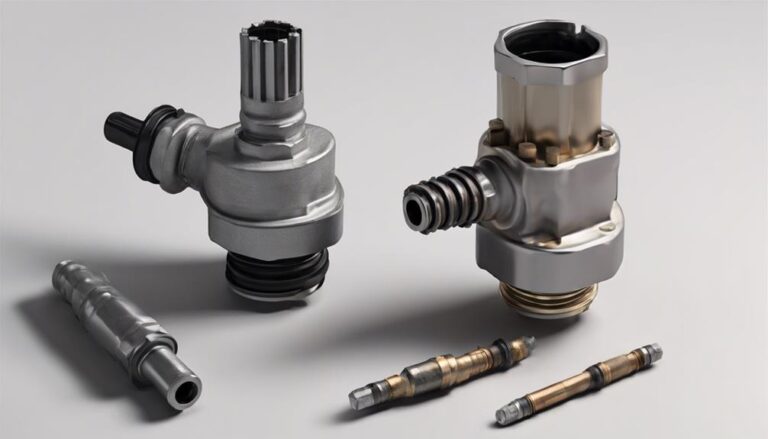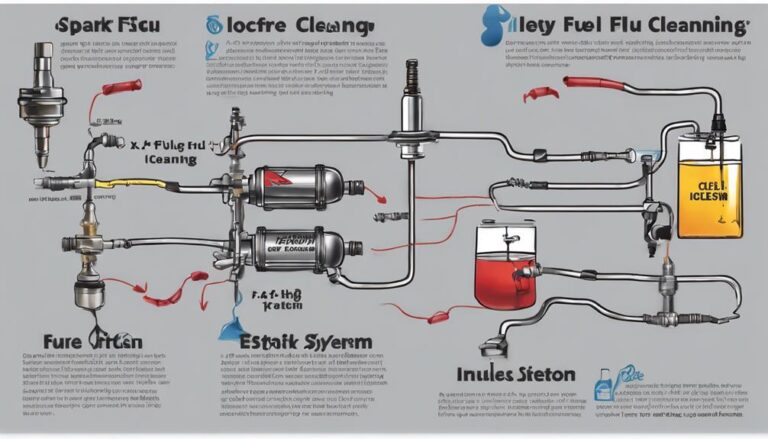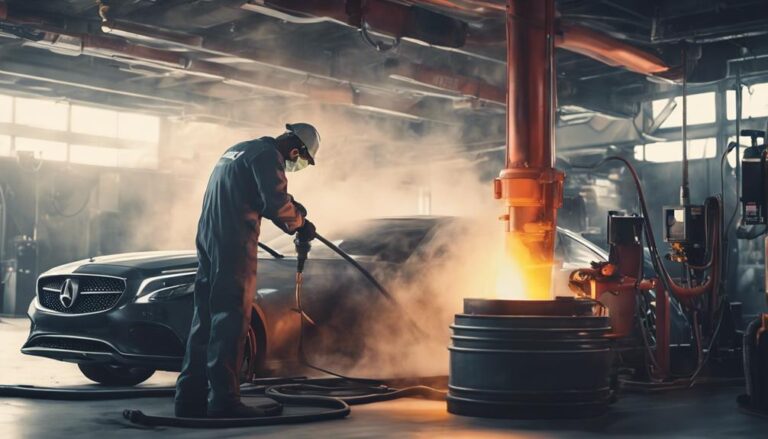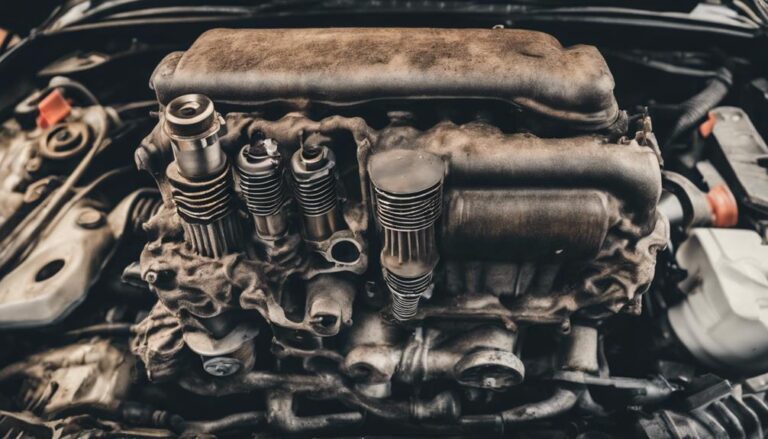Best Practices for Fuel System Cleaning Maintenance
When it comes to maintaining your vehicle's fuel system, the line between preventative care and reactive fixes can make all the difference in your driving experience. Understanding the nuances of fuel system cleaning maintenance can save you from unexpected headaches down the road.
Let's explore the nuances of fuel system upkeep to keep your engine running smoothly and efficiently.
Key Takeaways
- Regular fuel system cleaning every 30,000 miles or annually maintains optimal engine performance.
- Consider professional cleaning for thoroughness and expertise in maintaining fuel system health.
- Factors like driving habits, fuel quality, and vehicle age influence cleaning frequency.
- Signs indicating the need for cleaning include decreased power, rough idling, and reduced fuel economy.
Fuel System Cleaning Frequency Recommendations
To maintain optimal performance and prevent potential issues, adhering to the recommended fuel system cleaning frequency of every 30,000 miles or annually is essential. Following these maintenance intervals ensures the effectiveness of your vehicle's fuel system.
When it comes to cleaning your fuel system, you might wonder about the DIY versus professional approach. While some DIY cleaning methods exist, they may not be as thorough or effective as professional cleaning. Professional technicians have the expertise and tools to perform a comprehensive fuel system cleaning that can address any underlying issues promptly.
Importance of Regular Fuel System Maintenance
Regular fuel system maintenance plays a critical role in preventing issues such as decreased power, rough idling, and poor fuel economy, ensuring optimal engine performance every 30,000 miles. It's crucial to maintain the fuel system regularly to avoid these common problems that can hinder your driving experience.
To help you understand the importance of regular fuel system maintenance, consider the following:
- Fuel Quality Impact: Regular maintenance helps ensure that the fuel quality remains at an optimal level, preventing contaminants from affecting engine performance.
- Engine Performance: By maintaining your fuel system, you can sustain the engine's performance efficiency, avoiding power loss and ensuring a smooth driving experience.
- Preventive Fuel Filter Replacement: Regularly replacing the fuel filter is vital to prevent clogs and sustain the overall health of the fuel system.
- Proper Fuel Delivery: Keeping the gas tank at least 1/4 full is essential to prevent fuel pump damage and ensure consistent fuel delivery to the engine.
Factors Influencing Cleaning Frequency

Factors influencing the frequency of fuel system cleaning can vary based on driving habits, fuel quality, vehicle age, maintenance practices, and manufacturer recommendations. When it comes to fuel efficiency and the need for cleaning, consider your driving conditions. For instance, if you often drive in stop-and-go city traffic, your fuel system may accumulate deposits quicker than if you primarily take long highway trips. The quality of fuel you use is crucial; lower-quality fuels may leave more residues, necessitating more frequent cleaning. Older vehicles or those with high mileage may also require more frequent cleaning to maintain optimal performance. Regular maintenance checks can help monitor the condition of your fuel system, ensuring that cleaning is done promptly when needed. To determine the ideal cleaning frequency, consult a mechanic or adhere to the manufacturer's recommendations.
| Factors Influencing Cleaning Frequency | ||
|---|---|---|
| Driving Habits | Fuel Quality | Vehicle Age |
| Maintenance Practices | Manufacturer Recommendations |
Signs Indicating the Need for Cleaning
If you notice decreased power while going uphill or towing, this could indicate the need for fuel system cleaning. Other signs suggesting a dirty fuel system include difficulty starting your car, especially in cold weather, rough idling where the engine shakes at idle, sluggish acceleration, and reduced fuel economy leading to increased gas consumption.
- Decreased power while going uphill or towing: Indicates potential need for fuel system cleaning.
- Difficulty starting your car, especially in cold weather: Could signal a clogged fuel system.
- Rough idling, engine shakes or vibrates at idle: Sign of fuel system issues.
- Sluggish acceleration or delay in response when pressing the gas pedal: Points to a dirty fuel system.
Addressing these signs promptly is crucial for maintaining fuel efficiency, performance, engine longevity, and reliability. By recognizing these indicators early on, you can take proactive measures to ensure a clean fuel system and optimal vehicle operation.
Proactive Measures for a Clean Fuel System
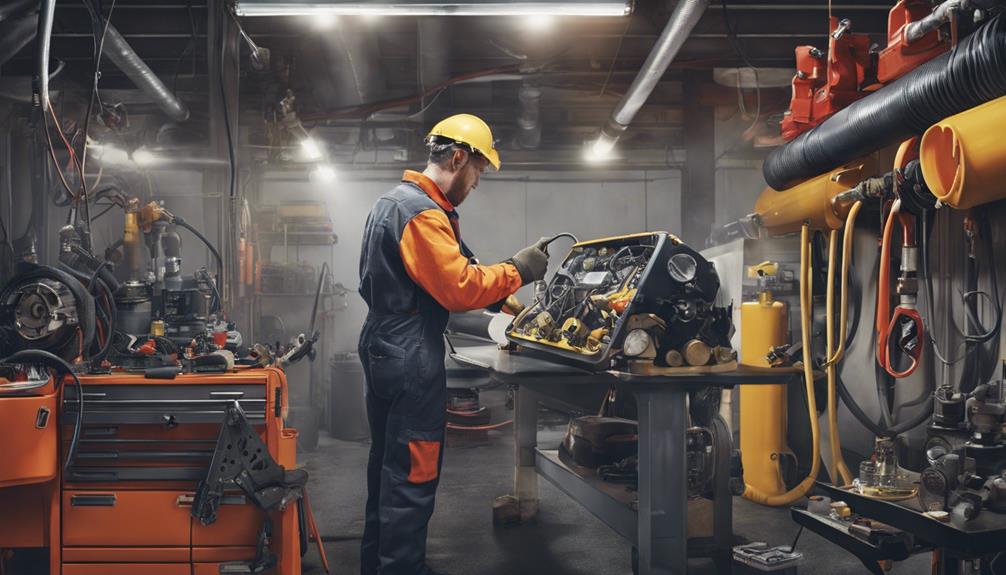
If you've noticed any of the signs indicating a dirty fuel system, implementing proactive measures is essential to maintain optimal performance and prevent further issues. Preventative care is key to ensuring your fuel system stays clean and functions efficiently. Regularly using a fuel injector cleaner every 3,000-5,000 miles can prevent clogged injectors and maintain peak performance. Timing the application of the cleaner when your fuel tank is around 1/4 full ensures better mixing and effectiveness. Additionally, after adding the cleaner, filling the tank with quality fuel and driving for 20-30 minutes helps circulate the cleaner throughout the system. By following these steps, you can ensure your fuel system remains clean and your engine runs smoothly.
| Preventative Care | Fuel Additive Benefits |
|---|---|
| Regular cleaner use | Prevents clogs |
| Proper timing | Enhances performance |
| Quality fuel usage | Improved fuel mixing |
Frequently Asked Questions
How Often Should You Do Fuel System Cleaning?
You should aim to do fuel system cleaning every 30,000 miles or annually to optimize fuel efficiency and ensure longevity. Regular maintenance at these intervals helps prevent issues and keeps your vehicle running smoothly.
How Do I Get the Most Out of My Fuel System Cleaner?
To maximize your fuel system cleaner, ensure timely usage and correct dosage. Add it to a quarter-full tank, top up with quality fuel, and drive for 20-30 minutes. Follow this regimen every 3,000-5,000 miles for optimal results and improved fuel efficiency.
How Do You Maintain a Fuel System?
To maintain your fuel system, regularly inspect it for any issues and replace the fuel filter. These steps are crucial for optimal performance and longevity. Don't overlook this maintenance to keep your vehicle running efficiently.
What Is a Professional Fuel System Cleaning?
When you get a professional fuel system cleaning, experts use specialized tools and solutions to remove carbon buildup, inspect for damage, and restore components like injectors and valves. It benefits performance and longevity.
Conclusion
In conclusion, maintaining a clean fuel system is akin to tending to a well-oiled machine – it ensures smooth operation and prevents breakdowns.
By adhering to recommended cleaning frequencies, monitoring for signs of issues, and taking proactive measures, you can keep your vehicle running at peak performance.
Remember, a little care now can save you from a major overhaul later. Keep your fuel system clean, and your ride will thank you.

